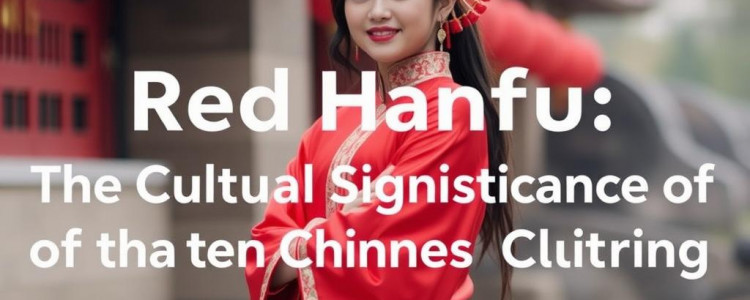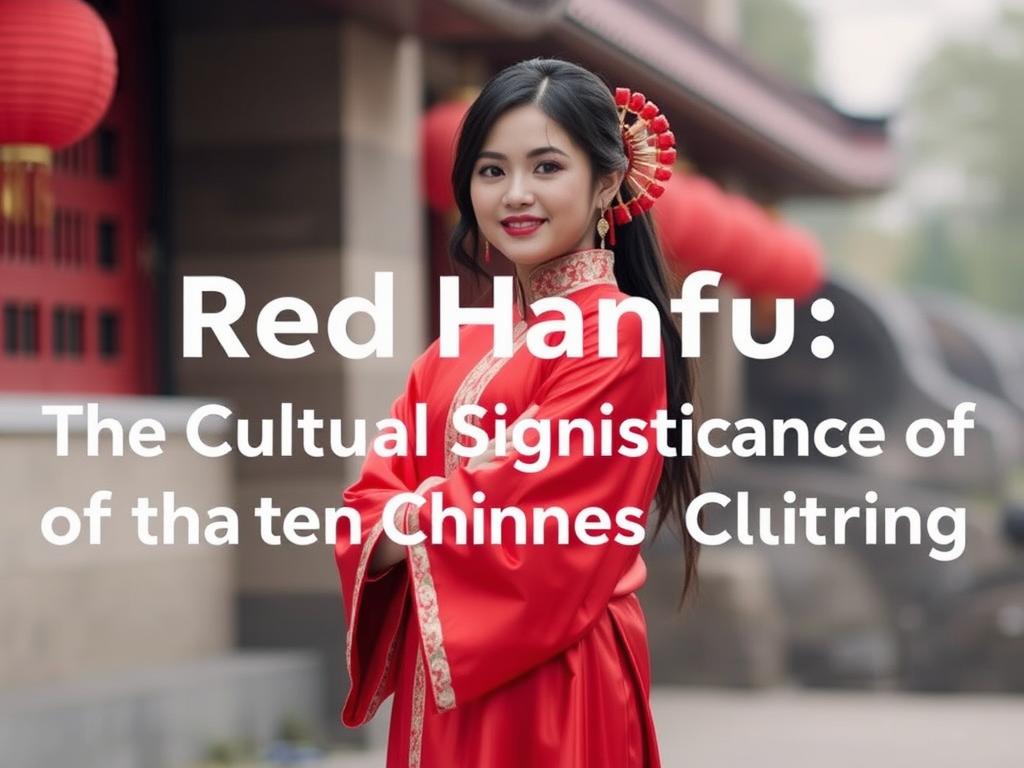SQLITE NOT INSTALLED
The Significance of Traditional Chinese Clothing
Traditional Chinese clothing, particularly the red hanfu, carries immense cultural significance that spans centuries. Each piece of traditional attire tells a story, symbolizing the wearer’s status, cultural background, and the rich history of Chinese civilization. From the elegant lines of the hanfu to the vibrant colors associated with auspicious occasions, these garments are more than just fabric; they are a representation of identity and tradition.
Historical Background
Historically, hanfu emerged during the Han Dynasty and has evolved through various dynasties, reflecting social changes. Unlike modern clothing, traditional garments were often handcrafted, emphasizing artistry and the wearer’s individualism. The red hanfu, in particular, stands out for its striking color and intricate design, often worn during festive occasions like weddings and celebrations of the Lunar New Year, symbolizing joy and good fortune. This vibrant color has become synonymous with Chinese culture, making it a favored choice for celebratory attire.
Symbolism of Colors
In Chinese culture, colors are imbued with specific meanings. Red symbolizes happiness, success, and good luck, which is why the red hanfu is a centerpiece during celebrations. Other colors carry their meanings as well: yellow represents royalty and power, while black is linked to death and mourning. These connotations play a significant role when selecting traditional clothing for specific occasions, ensuring that the attire chosen aligns with the desired outcomes of the event.
Cultural Significance of the Hanfu
The hanfu’s design also embodies the virtues of humility and grace. With its flowing lines and elegant form, wearing a hanfu lends an air of distinction to the wearer. The silk used to create these dresses is soft and luxurious, enhancing the sense of elegance. Throughout history, significant figures in Chinese literature and politics have been depicted wearing hanfu, reinforcing the garment’s societal value. This traditional garment has stood the test of time, leading to a revival in recent decades, where individuals from various backgrounds celebrate their heritage through dress.
Components of the Hanfu
A typical red hanfu comprises various elements that contribute to its overall aesthetics and cultural symbolism. Key components include:
- Shirt: Often a long-sleeved tunic, representing modesty.
- Skirt: Flowing and expansive, symbolizing fertility and prosperity.
- Waistband: Tying the outfit together, signifying harmony between body and clothing.
- Accessories: These may include intricate hairpieces or jewelry, enhancing the wearer’s elegance.
Modern Relevance
Today, the resurgence of interest in traditional attire is revolutionizing cultural expression. The red hanfu can be seen at cultural festivals, weddings, and even in fashion shows around the globe. Young people are especially enthusiastic about incorporating these traditional elements into their modern wardrobes, merging styles while paying homage to their roots. This blending of old and new not only revitalizes traditional clothing but also promotes cultural awareness, allowing future generations to understand their heritage.
Conclusion
The significance of traditional Chinese clothing, particularly the striking red hanfu, is multifaceted. It serves as a visual storytelling medium, preserving the tales of cultural heritage, history, and individual identity. As we navigate contemporary society, wearing traditional clothing empowers individuals to connect with their roots while embracing modernity. Embracing this aspect of culture allows everyone to appreciate the artistry, symbolism, and the rich tapestry of traditions that have shaped Chinese civilization. For those interested in exploring more, visit https://charmdynasty.com/collections/the-red-hanfu-dress.





